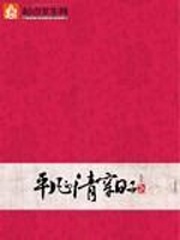CHAPTER I.
您可以在百度里搜索“Pierre: Or, The Ambiguities 艾草文学(www.321553.xyz)”查找最新章节!
BOOK XXII.
THE FLOWER-CURTAIN LIFTED FROM BEFORE A TROPICAL AUTHOR, WITH SOME REMARKS ON THE TRANSCENDENTAL FLESH-BRUSH PHILOSOPHY.
CHAPTER I.
SOME days passed after the fatal tidings from the Meadows, and at length, somewhat mastering his emotions, Pierre again sits down in his chamber; for grieve how he will, yet work he must. And now day succeeds day, and week follows week, and Pierre still sits in his chamber. The long rows of cooled brick-kilns around him scarce know of the change; but from the fair fields of his great-great-great-grandfather's manor, Summer hath flown like a swallow-guest; the perfidious wight, Autumn, hath peeped in at the groves of the maple, and under pretense of clothing them in rich russet and gold, hath stript them at last of the slightest rag, and then ran away laughing; prophetic icicles depend from the arbors round about the old manorial mansion—now locked up and abandoned; and the little, round, marble table in the viny summer-house where, of July mornings, he had sat chatting and drinking negus with his gay mother, is now spread with a shivering napkin of frost; sleety varnish hath encrusted that once gay mother's grave, preparing it for its final cerements of wrapping snow upon snow; wild howl the winds in the woods: it is Winter. Sweet Summer is done; and Autumn is done; but the book, like the bitter winter, is yet to be finished.
That season's wheat is long garnered, Pierre; that season's ripe apples and grapes are in; no crop, no plant, no fruit is out; the whole harvest is done. Oh, woe to that belated winter-overtaken plant, which the summer could not bring to maturity! The drifting winter snows shall whelm it. Think, Pierre, doth not thy plant belong to some other and tropical clime? Though transplanted to northern Maine, the orange-tree of the Floridas will put forth leaves in that parsimonious summer, and show some few tokens of fruitage; yet November will find no golden globes thereon; and the passionate old lumber-man, December, shall peel the whole tree, wrench it off at the ground, and toss it for a fagot to some lime-kiln. Ah, Pierre, Pierre, make haste! make haste! force thy fruitage, lest the winter force thee.
Watch yon little toddler, how long it is learning to stand by itself! First it shrieks and implores, and will not try to stand at all, unless both father and mother uphold it; then a little more bold, it must, at least, feel one parental hand, else again the cry and the tremble; long time is it ere by degrees this child comes to stand without any support. But, by-and-by, grown up to man's estate, it shall leave the very mother that bore it, and the father that begot it, and cross the seas, perhaps, or settle in far Oregon lands. There now, do you see the soul. In its germ on all sides it is closely folded by the world, as the husk folds the tenderest fruit; then it is born from the world-husk, but still now outwardly clings to it;—still clamors for the support of its mother the world, and its father the Deity. But it shall yet learn to stand independent, though not without many a bitter wail, and many a miserable fall.
That hour of the life of a man when first the help of humanity fails him, and he learns that in his obscurity and indigence humanity holds him a dog and no man: that hour is a hard one, but not the hardest. There is still another hour which follows, when he learns that in his infinite comparative minuteness and abjectness, the gods do likewise despise him, and own him not of their clan. Divinity and humanity then are equally willing that he should starve in the street for all that either will do for him. Now cruel father and mother have both let go his hand, and the little soul-toddler, now you shall hear his shriek and his wail, and often his fall.
When at Saddle Meadows, Pierre had wavered and trembled in those first wretched hours ensuing upon the receipt of Isabel's letter; then humanity had let go the hand of Pierre, and therefore his cry; but when at last inured to this, Pierre was seated at his book, willing that humanity should desert him, so long as he thought he felt a far higher support; then, ere long, he began to feel the utter loss of that other support, too; ay, even the paternal gods themselves did now desert Pierre; the toddler was toddling entirely alone, and not without shrieks.
If man must wrestle, perhaps it is well that it should be on the nakedest possible plain.
The three chambers of Pierre at the 'tles' were connecting ones. The first—having a little retreat where Delly slept—was used for the more exacting domestic purposes: here also their meals were taken; the second was the chamber of Isabel; the third was the closet of Pierre. In the first—the dining room, as they called it—there was a stove which boiled the water for their coffee and tea, and where Delly concocted their light repasts. This was their only fire; for, warned again and again to economize to the uttermost, Pierre did not dare to purchase any additional warmth. But by prudent management, a very little warmth may go a great way. In the present case, it went some forty feet or more. A horizontal pipe, after elbowing away from above the stove in the dining-room, pierced the partition wall, and passing straight through Isabel's chamber, entered the closet of Pierre at one corner, and then abruptly disappeared into the wall, where all further caloric—if any—went up through the chimney into the air, to help warm the December sun. Now, the great distance of Pierre's calorical stream from its fountain, sadly impaired it, and weakened it. It hardly had the flavor of heat. It would have had but very inconsiderable influence in raising the depressed spirits of the most mercurial thermometer; certainly it was not very elevating to the spirits of Pierre. Besides, this calorical stream, small as it was, did not flow through the room, but only entered it, to elbow right out of it, as some coquettish maidens enter the heart; moreover, it was in the furthest corner from the only place where, with a judicious view to the light, Pierre's desk-barrels and board could advantageously stand. Often, Isabel insisted upon his having a separate stove to himself; but Pierre would not listen to such a thing. Then Isabel would offer her own room to him; saying it was of no indispensable use to her by day; she could easily spend her time in the dining-room; but Pierre would not listen to such a thing; he would not deprive her of the comfort of a continually accessible privacy; besides, he was now used to his own room, and must sit by that particular window there, and no other. Then Isabel would insist upon keeping her connecting door open while Pierre was employed at his desk, that so the heat of her room might bodily go into his; but Pierre would not listen to such a thing: because he must be religiously locked up while at work; outer love and hate must alike be excluded then. In vain Isabel said she would make not the slightest noise, and muffle the point of the very needle she used. All in vain. Pierre was inflexible here.
Yes, he was resolved to battle it out in his own solitary closet; though a strange, transcendental conceit of one of the more erratic and non-conforming 'tles,—who was also at this time engaged upon a profound work above stairs, and who denied himself his full sufficiency of food, in order to insure an abundant fire;—the strange conceit of this 'tle, I say,—accidentally communicated to Pierre,—that, through all the kingdoms of Nature, caloric was the great universal producer and vivifyer, and could not be prudently excluded from the spot where great books were in the act of creation; and therefore, he (the 'tle) for one, was resolved to plant his head in a hot-bed of stove-warmed air, and so force his brain to germinate and blossom, and bud, and put forth the eventual, crowning, victorious flower;—though indeed this conceit rather staggered Pierre—for in truth, there was no small smack of plausible analogy in it—yet one thought of his purse would wholly expel the unwelcome intrusion, and reinforce his own previous resolve.
However lofty and magnificent the movements of the stars; whatever celestial melodies they may thereby beget; yet the astronomers assure us that they are the most rigidly methodical of all the things that exist. No old housewife goes her daily domestic round with one millionth part the precision of the great planet Jupiter in his stated and unalterable revolutions. He has found his orbit, and stays in it; he has timed himself, and adheres to his periods. So, in some degree with Pierre, now revolving in the troubled orbit of his book.
Pierre rose moderately early; and the better to inure himself to the permanent chill of his room, and to defy and beard to its face, the cruelest cold of the outer air; he would—behind the curtain—throw down the upper sash of his window; and on a square of old painted canvas, formerly wrapping some bale of goods in the neighborhood, treat his limbs, of those early December mornings, to a copious ablution, in water thickened with incipient ice. Nor, in this stoic performance, was he at all without company,—not present, but adjoiningly sympathetic; for scarce an 'tle in all those scores and scores of chambers, but undeviatingly took his daily December bath. Pierre had only to peep out of his pane and glance round the multi-windowed, inclosing walls of the quadrangle, to catch plentiful half-glimpses, all round him, of many a lean, philosophical nudity, refreshing his meager bones with crash-towel and cold water. "Quick be the play," was their motto: "Lively our elbows, and nimble all our tenuities." Oh, the dismal echoings of the raspings of flesh-brushes, perverted to the filing and polishing of the merest ribs! Oh, the shuddersome splashings of pails of ice-water over feverish heads, not unfamiliar with aches! Oh, the rheumatical cracklings of rusted joints, in that defied air of December! for every thick-frosted sash was down, and every lean nudity courted the zephyr!
Among all the innate, hyena-like repellants to the reception of any set form of a spiritually-minded and pure archetypical faith, there is nothing so potent in its skeptical tendencies, as that inevitable perverse ridiculousness, which so often bestreaks some of the essentially finest and noblest aspirations of those men, who disgusted with the common conventional quackeries, strive, in their clogged terrestrial humanities, after some imperfectly discerned, but heavenly ideals: ideals, not only imperfectly discerned in themselves, but the path to them so little traceable, that no two minds will entirely agree upon it.
Hardly a new-light 'tle, but who, in superaddition to his revolutionary scheme for the minds and philosophies of men, entertains some insane, heterodoxical notions about the economy of his body. His soul, introduced by the gentlemanly gods, into the supernal society,—practically rejects that most sensible maxim of men of the world, who chancing to gain the friendship of any great character, never make that the ground of boring him with the supplemental acquaintance of their next friend, who perhaps, is some miserable ninny. Love me, love my dog, is only an adage for the old country-women who affectionately kiss their cows. The gods love the soul of a man; often, they will frankly accost it; but they abominate his body; and will forever cut it dead, both here and hereafter. So, if thou wouldst go to the gods, leave thy dog of a body behind thee. And most impotently thou strivest with thy purifying cold baths, and thy diligent scrubbings with flesh-brushes, to prepare it as a meet offering for their altar. Nor shall all thy Pythagorean and Shellian dietings on apple-parings, dried prunes, and crumbs of oat-meal cracker, ever fit thy body for heaven. Feed all things with food convenient for them,—that is, if the food be procurable. The food of thy soul is light and space; feed it then on light and space. But the food of thy body is champagne and oysters; feed it then on champagne and oysters; and so shall it merit a joyful resurrection, if there is any to be. Say, wouldst thou rise with a lantern jaw and a spavined knee? Rise with brawn on thee, and a most royal corporation before thee; so shalt thou in that day claim respectful attention. Know this: that while many a consumptive dietarian has but produced the merest literary flatulencies to the world; convivial authors have alike given utterance to the sublimest wisdom, and created the least gross and most ethereal forms. And for men of demonstrative muscle and action, consider that right royal epitaph which Cyrus the Great caused to be engraved on his tomb—"I could drink a great deal of wine, and it did me a great deal of good." Ah, foolish! to think that by starving thy body, thou shalt fatten thy soul! Is yonder ox fatted because yonder lean fox starves in the winter wood? And prate not of despising thy body, while still thou flourisheth thy flesh-brush! The finest houses are most cared for within; the outer walls are freely left to the dust and the soot. Put venison in thee, and so wit shall come out of thee. It is one thing in the mill, but another in the sack.
Now it was the continual, quadrangular example of those forlorn fellows, the 'tles, who, in this period of his half-developments and transitions, had deluded Pierre into the Flesh-Brush Philosophy, and had almost tempted him into the Apple-Parings Dialectics. For all the long wards, corridors, and multitudinous chambers of the 'tles' were scattered with the stems of apples, the stones of prunes, and the shells of peanuts. They went about huskily muttering the Kantian Categories through teeth and lips dry and dusty as any miller's, with the crumbs of Graham crackers. A tumbler of cold water was the utmost welcome to their reception rooms; at the grand supposed Sanhedrim presided over by one of the deputies of Plotinus Plinlimmon, a huge jug of Adam's Ale, and a bushel-basket of Graham crackers were the only convivials. Continually bits of cheese were dropping from their pockets, and old shiny apple parchments were ignorantly exhibited every time they drew out a manuscript to read you. Some were curious in the vintages of waters; and in three glass decanters set before you, Fairmount, Croton, and Cochituate; they held that Croton was the most potent, Fairmount a gentle tonic, and Cochituate the mildest and least inebriating of all. Take some more of the Croton, my dear sir! Be brisk with the Fairmount! Why stops that Cochituate? So on their philosophical tables went round their Port, their Sherry, and their Claret.
Some, further advanced, rejected mere water in the bath, as altogether too coarse an element; and so, took to the Vapor-baths, and steamed their lean ribs every morning. The smoke which issued from their heads, and overspread their pages, was prefigured in the mists that issued from under their door-sills and out of their windows. Some could not sit down of a morning until after first applying the Vapor-bath outside and then thoroughly rinsing out their interiors with five cups of cold Croton. They were as faithfully replenished fire-buckets; and could they, standing in one cordon, have consecutively pumped themselves into each other, then the great fire of 1835 had been far less wide-spread and disastrous.
Ah! ye poor lean ones! ye wretched Soakites and Vaporites! have not your niggardly fortunes enough rinsed ye out, and wizened ye, but ye must still be dragging the hose-pipe, and throwing still more cold Croton on yourselves and the world? Ah! attach the screw of your hose-pipe to some fine old butt of Madeira! pump us some sparkling wine into the world! see, see, already, from all eternity, two-thirds of it have lain helplessly soaking! Pierre: Or, The Ambiguities




